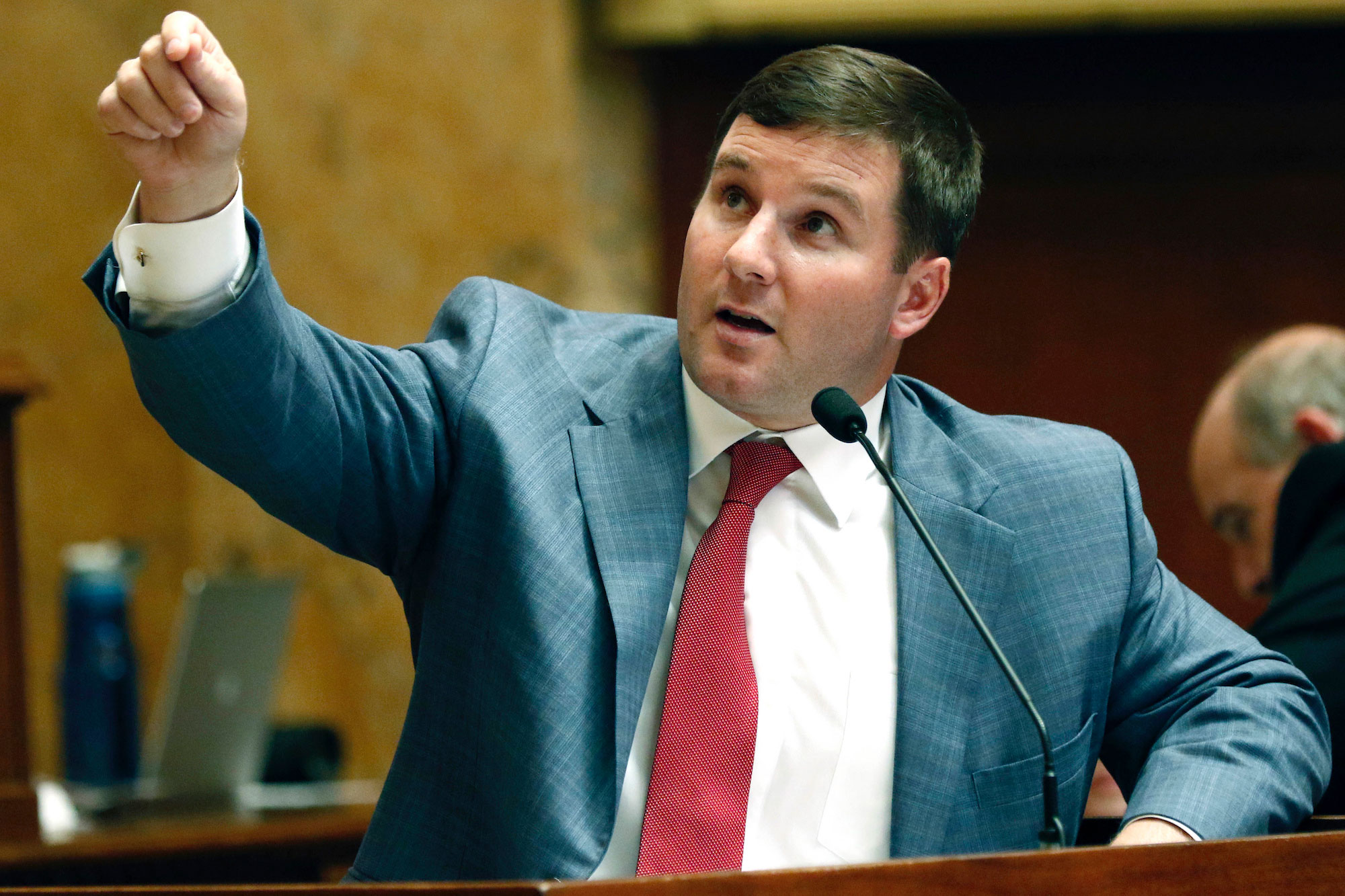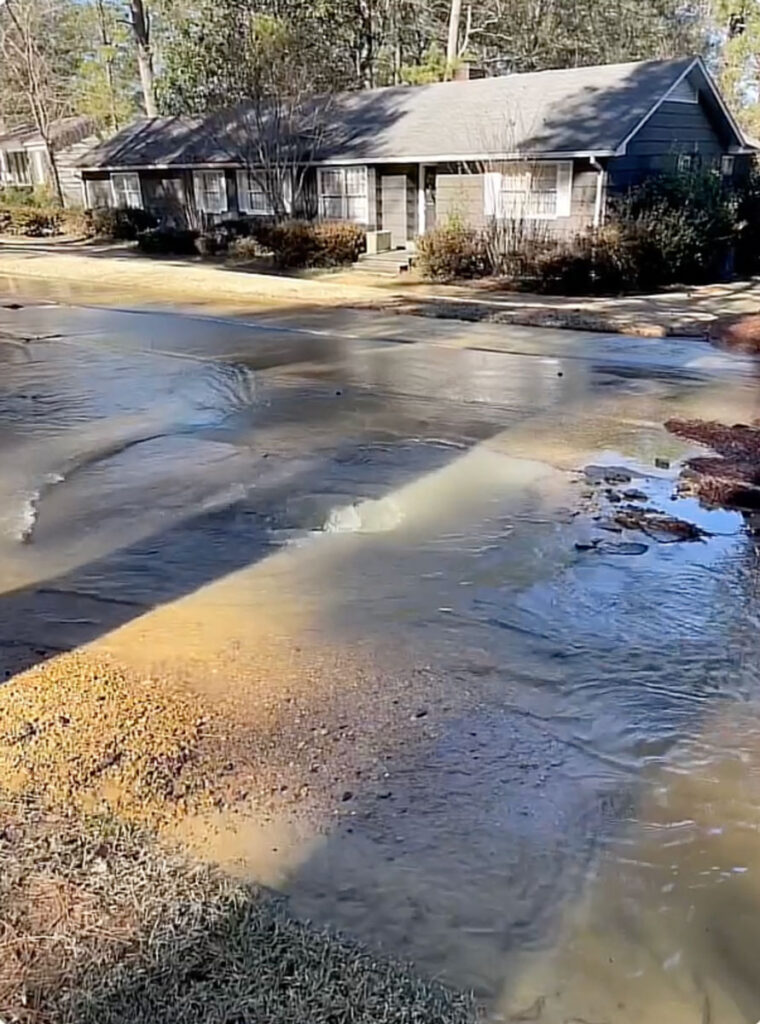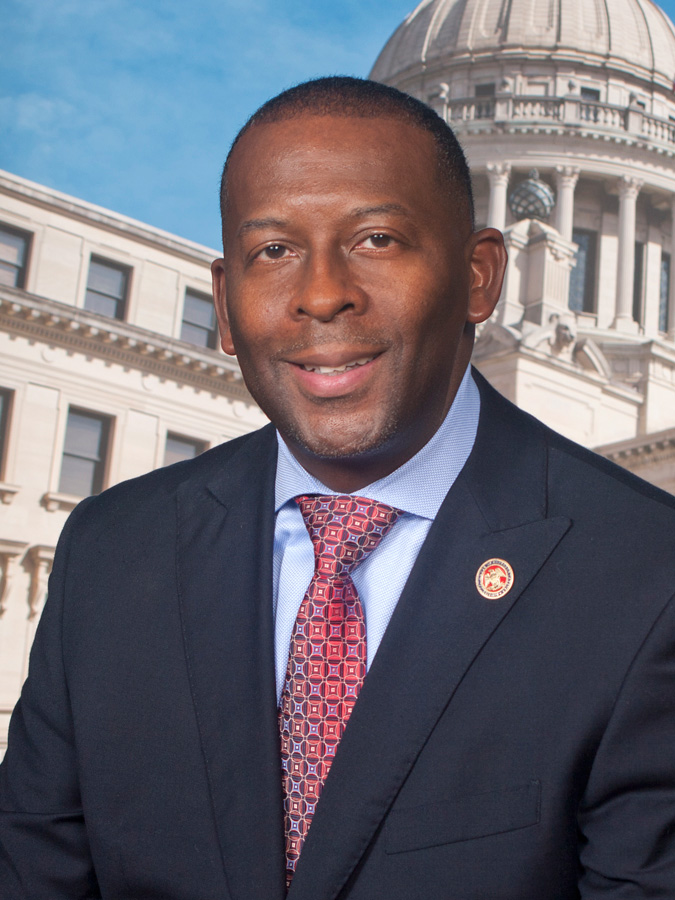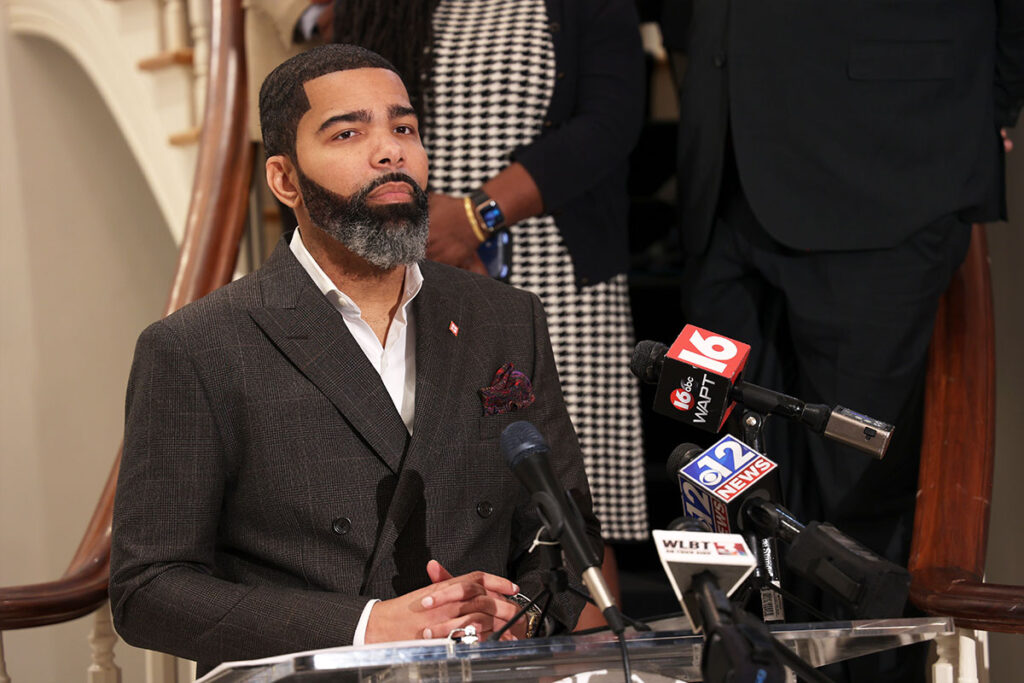Mississippi lawmakers could force the City of Jackson to use all money it receives from its local 1% sales tax exclusively on water system repairs if a new bill becomes law. Rep. Trey Lamar, R-Senatobia, sponsored House Bill 1168 and the Mississippi House passed it 76-41 on Feb. 2. The Mississippi Senate has until the Feb. 28 legislative deadline by the end of business to advance it.
Jackson Mayor Chokwe A. Lumumba told the Mississippi Free Press on Feb. 24 that the bill’s proponents “are looking for an excuse to control another area of Jackson.” He recently compared other bills to give the state more authority over the capital city to “apartheid.”
The bill says Jackson can only use revenue from the special sales tax “to pay the cost of repairs, upgrades and improvements to the municipality’s water system and related infrastructure.”
State ‘Trying To Govern Jackson,’ Lumumba Says
Lawmakers are currently considering a separate bill that could remove control of the water system from the City and give it to a regional entity, but only after a federal judge ends the federal receivership that took control of the system following last fall’s water crisis. Another bill under consideration would give the state-run Capitol Police jurisdiction over the entire city.
Mayor Lumumba insisted on Feb. 24 that the special sales tax bill is similar and amounts to no more than state lawmakers “trying to govern Jackson without truly knowing what the issues are.”
“I don’t even believe that the members appointed by the Republican leadership to the (One-Percent Sales Tax) Commission support it. No one on the commission supports it, and I’m sure the residents of Jackson would not support it,” he said. “It’s singularly focused, and it does not consider the comprehensive nature of what it takes to run and sustain the infrastructure of the city.”

Senate leadership sent H.B. 1168 to the Senate Finance Committee. Its chairman, Sen. Josh Harkins, R-Flowood, told the Mississippi Free Press on Feb. 23 that he may take it up when the committee meets on Tuesday, Feb. 28, which is the deadline for such bills to advance out of committee.
During debate on the House floor on Feb. 2, Mississippi House Rep. Edward Blackmon, Jr., D-Canton, pointed out that the bill would leave Jackson with about $13 million less yearly to address the potholes and bridge problems.
“Jackson sits on a lot of clay soil that expands and contracts based on what the weather or temperature is,” Blackmon said.
“Correct,” Lamar replied.
“And that causes the asphalt to spread, to sink, and there you have potholes,” Blackmon continued.
“I understand,” Lamar said.
“So what are we going to give Jackson now to replace the money that you want to move over to the water problem? What are the citizens going to do and businesses going to do about these potholes that will now be less attended to because of the lack of funds?” Blackmon asked.
Lamar pointed to the state’s 2018 Mississippi Infrastructure Modernization Act, which he said the state will fully implement this year, adding that Jackson already received $7-8 million dollars from it last year.
“That’s new money that can be used for the potholes you’re talking about,” he said. At press time, Lamar has not responded to multiple requests for an interview since Feb. 24.
State Created Tax In 2011
In 2011, the Legislature gave the City of Jackson the option to levy the special one-percent sales tax in addition to the State’s 7% sales tax and created the One-Percent Sales Tax Commission.

The commission’s job is to ensure the funds are used for “road and street repair, reconstruction, and resurfacing projects based on traffic patterns, need and usage, and to pay the costs of water, sewer and drainage projects.”
The collection began in 2014 after Jackson residents approved the 1% sales tax in a referendum. Under the law, Jackson’s mayor nominates three people to the commission and also appoints the chairman. The governor, lieutenant governor, and House speaker appoint one commissioner each, and the Greater Jackson Chamber Partnership appoints four members.
In the master plan that the commission approved in 2017, which the city provided to this reporter following a public records request, the commission said “a minimum of 50% of the funds received annually from the 1% sales taxes shall be expended on street improvement projects.”
While the master plan does not prioritize water projects as it does roads, it does not prohibit them.
Under the proposal, the Mississippi Department of Revenue would have to send a notice of compliance to the City if it fails to provide a yearly audit report showing how it spends the money and the State would withhold the money if the City did not comply within 30 days.
The 2011 law mandates yearly independent audits of the City’s use of special sales tax revenues.
“The law also requires the City of Jackson and the (One-Percent Sales Tax) Commission to file reports on how they spent the money with the clerk and the secretary of the Senate, and as of this morning, there have been no reports filed,” Lamar said on the House floor on Feb. 2.
Asked about the claim, Lumumba noted that “every single meeting of what the finances are for the 1% sales tax is available at any time right now.”
“Whether there was a proper filing of it, that legislation predates me, so we’ll be willing to look at that,” he said.
‘What Sense Does This Make?’
During debate on the House floor on Feb. 2, Rep. Trey Lamar said he received information from the Mississippi Department of Revenue showing that, since the special sales tax took effect in 2014, it has generated about $120 million in revenue for the City.
He said his bill “simply clarifies that going forward, they would spend that money on water and sewer needs strictly.”
The bill does not say anything about using the funding for sewer.
“There’s no money at all being taken away from Jackson,” Lamar continued on Feb. 2. “This is simply prioritizing where it’s going to be spent, and I hear Jackson’s got a water problem, so I think it makes sense to focus that money at this time, and certainly, this body can do whatever it wants to do. We could come back and change it later.”

Rep. Christopher Bell, D-Jackson, pointed out that Congress appropriated money to repair Jackson’s water system last December.
“What sense does this make to take these funds and utilize them for water infrastructure only when we are already receiving 800 million from the feds?” he asked.
“I also understand that the money has not hit the bank account yet,” Lamar said. “I also understand that the federally court-appointed conservator is looking for money now, as in today, and so the Ways and Means Committee met, we considered this bill, (and) we considered it to be a reasonable use of these funds to basically free up this money or at least prioritize the money in the immediate time frame for water and sewer so that the conservator could have access to an additional stream of money over the next year or so.”
“And if this body so chooses, if you come back from a year and there’s 600 million in the bank that’s going to fix all the water and sewer problems, we can change it back.”
Lumumba told the Mississippi Free Press that the City has access to that federal funding “on a project-by-project basis.”
“It’s not sitting in any account with the City,” he said. “We don’t hold the funds. The federal government has allocated it to the City. And we have to submit the dollars needed for the individual projects, and those projects will be prioritized and led by our third-party manager, Ted Heniffin.”










